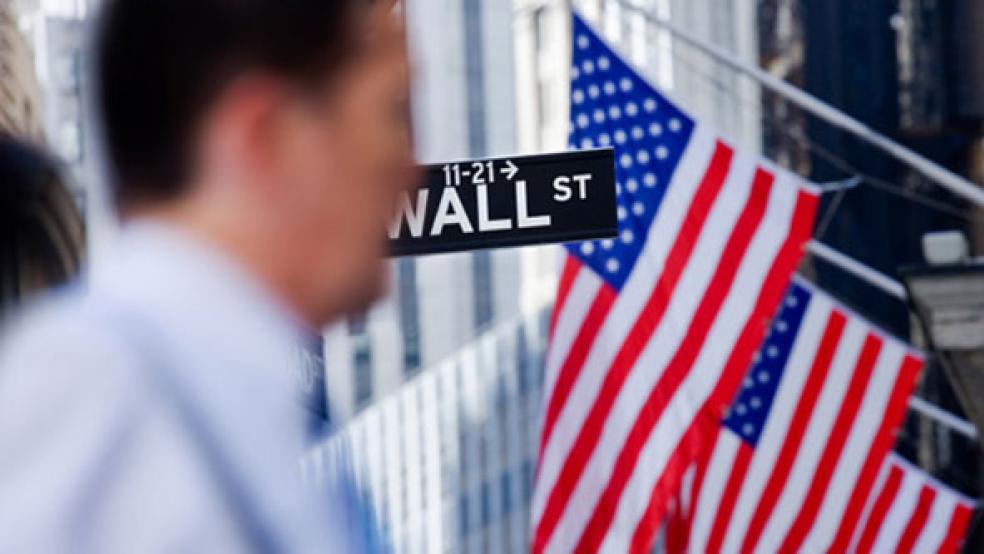Wall Street is getting increasingly nervous about the prospects for recession, both on a global and domestic level.
Slowing global growth has been one of the predominant investing themes in 2015, causing enough turmoil to send both the S&P 500 and the MSCI World Index down about 4 percent.
Related: Stock Are Sending a Recession Warning
The $73.5 trillion global economy is expected to grow 3.1 percent in 2015 and 3.6 percent in 2016, according to the latest International Monetary Fund projections. Those numbers, though, are heading lower and could be revised even more before all is said and done.
Citigroup economist Willem Buiter looks at the world landscape and sees an economy performing substantially below potential output, which he uses as the general benchmark for the idea of a global recession. With that in mind, he said the chances of a global recession in 2016 are growing.
"We think that the evidence suggests that the global output gap is negative and that the global economy is currently growing at a rate below global potential growth. The (negative) output gap is therefore widening," Buiter said in a note to clients. He added, "from an output gap that was probably quite close to zero fairly recently, continued sub-par global growth is likely to put the global economy back into recession, if indeed the world ever fully emerged of the recession caused by the global financial crisis.
Recessions aren't necessarily a bad things for investors.
In the 12 recessions after World War II, the S&P 500 has gone up six times afterwards and down the other six times. The average has been a decline of 3.1 percent, followed by a 12.9 percent increase six months out and 15.3 percent gain a year after, according to figures from Sam Stovall, U.S. equity strategist at S&P Capital IQ.
Economists look at global recessions a bit different than national ones. Though there is no strict definition of the word, a country is generally thought to be in "recession" if it registers consecutive quarters of negative growth.
Related: Worried About a Recession? Here’s When the Next Slump Will Hit
On a global scale, though, the standard is different. Absolute growth less than 3 percent, or GDP adjusted for market exchange rates below 2 percent, is generally good enough to call a recession. By either measure, the world is teetering on the line, with 2015 adjusted growth pegged at 2.5 percent and 2016 at 3 percent.
Closer to home, the prospects for recession seem low, though worries have increased in recent days.
Liz Ann Sonders, the often-bullish chief investment strategist at Charles Schwab, generated some talk on Wall Street this week when she announced that the firm, which manages $2.46 trillion for clients, has turned neutral on stocks.
Her worries are twofold, and both involve recessions: One, the much-discussed potential for an earnings recession, the other a "relatively low" chance for an outright economic recession that she nonetheless believes should be considered.
Corporate earnings on the S&P 500 are expected to decline just over 5 percent in the third quarter, according to estimates from both FactSet and S&P Capital IQ—Estimize puts the decline closer to 2.2 percent—and projections for the fourth quarter are coming down at a steady clip as well. Where at one point the final three-month period was expected to show 12 percent earnings growth, the estimate now is for a nearly 1 percent drop. Full-year earnings growth is now projected to be -0.75 percent, according to S&P Capital IQ.
On balance, Sonders believes employment and income growth are "still relatively healthy" despite the dismal September nonfarm payrolls report showing just 142,000 new jobs for the month and flat salaries. She also points to strength in housing, car sales and construction spending.
Related: The 10 Cities Still Suffering Most from the Great Recession
However, weakness in earnings and profit margins, widening credit spreads and slowing global trade remain significant headwinds, she said.
"We believe an economic recession remains unlikely near-term, but we are on watch," Sonders said in a note. "We are maintaining our more cautious 'neutral' rating on US equities, which means investors should not take any additional risk above and beyond their long-term allocation to equities."




